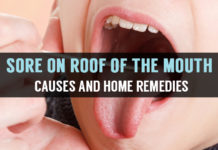Ear discharge or drainage refers to the draining of a particular type of fluid from the ear. Also called otorrhea. Usually, this fluid turns into superfluous wax released by the body through the canal of the ear.
The wax forms due to the oil that our bodies naturally produce. The function of earwax is to protect the ear from dust, fungus, and bacteria.
However, other severe conditions, like ruptured eardrums, can lead to blood discharge and other fluid kinds from the ear. This type of discharge is a serious indication of ear injury and requires immediate medical attention.
Various types of infections and inflammation like otitis in the ear can also stimulate drainage, which otherwise helps in accelerating the healing process.
An ear infection happens when a viral or bacterial infection affects the middle ear or the ear sections behind the eardrum. Ear infections are painful due to inflammation and fluid formation. Ear infections can be acute or chronic. The former condition lasts for a shorter period but is painful. The latter condition of chronic ear infection persists forever and is recurrent. Moreover, a chronic ear infection can leave permanent damage to the ear.
Causes of Ear Discharge
Ear Infection
Infection in an ear occurs when viruses or bacteria damage the middle and inner sections of the ear. Ear infection causes the buildup of fluid in the ear, which eventually leads to discharge.
Trauma
Trauma can affect the ear canal and lead to ear discharge. A shock of this kind can take place as you clean your ear with a Q-tip if it is pushed too deep inside the ear. Increased pressure can cause trauma and eventually rapture the eardrum.
Swimmer’s Ear
Also called Otitis externa, it occurs as the ear canal gets infected with bacteria and fungus. Hours of staying in water can cause a lot of moisture to build up, which can further cause damage to the ear canals. This, in the end, causes an ear infection that makes it release fluid.
Other Causes
Other causes of ear drainage like mastoiditis, an infection that affects the bone located behind the ear. Otitis externa can be a malignant problem too. The condition of the swimmer’s ear can damage both bones and cartilage. A skull fracture can also cause ear drainage.
Ear discharge happens in all these cases as a procedure of healing.
Causes of Ear Infection
An infection in the ear occurs when one of the Eustachian tubes becomes blocked and swollen, causing the formation of ear fluid in the middle ear. Eustachian tubes are small in size and run from each ear directly to the throat. Causes of blockage of Eustachian tube include:
- Allergies
- Cold
- Infections of sinus
- Mucus formation
- Smoking
- Swollen and infected adenoids tissues near tonsils
- Air pressure change
Risk Factors for Ear Infections
Ear infections affect young children more as they have narrow and short Eustachian tubes. Other factors that lead to the development of infections in the ears are:
- Changes in Altitude
- Changes in climate
- Exposure to various smokes and cigarettes
- Usage of pacifier
- Recent ear infection and illness
Symptoms of Ear Infection
The typical signs of an ear infection include:
- Discomfort and mild pain in the ear
- Air pressure in the ear that continues for long
- Fussiness in young infants
- Pus or fluid or any other ear discharge
- Loss of hearing
These symptoms might persist for a long r can be recurrent from time to time. Pain is usually more severe with infection in both the ears. Symptoms of acute ear infection are more noticeable than that of chronic ear infection.

When Should I Seek for Medical Attention?
If you start to notice discharges from your ears of various colours like white, yellow or reddish at a stretch of more than five days, you should seek medical assistance. Very rarely, ear discharge can occur with the fever.
If you experience severe pain or your ears have turned red and swollen, you should not leave it uncared and untreated. Otherwise, this may further lead to problems of hearing loss. In case of injury, it should be treated by the doctor on an urgent basis.
Treatment Options for Ear Discharge
In most cases, ear discharges do not need medical treatment. Signs of infection in the ear start to disappear on their own within a week or two without the requirement of any treatment at all. Other medicines deal with ear pain, but such medication should be taken on the doctor’s recommendation.
If a baby under six months old suffers from a high fever, the doctor may prescribe antibiotic ear drops. If the eardrum tears, a doctor applies a paper patch to the affected area. This paper patch helps to keep the ear hole closed as the eardrum inside starts healing. Surgeries are implemented in severe cases.
Generally, a doctor recommends applying antibiotic ear drops even in adults to cure the ear infection. In some severe cases, the consumption of oral antibiotics might be necessary as well.
Prevention of Ear Infection
It would help if you practised the following to avoid the problems of ear infections.
- Wash your hands often
- Avoid hugely crowded areas
- Forgoing pacifiers with infants and small children
- Infant Breastfeeding
- Avoid secondhand smoke
- Maintain a high immunity system
Prevention of Ear Discharge
These procedures will help you to prevent ear discharge. Make sure to take protection from an ear infection. Fluid in the ear or discharge mostly occurs as a result of ear infections.
- Stay away from sick and infected people to avoid your ears from getting infected.
- Mayo Clinic has shown that breastfeeding may protect the infants from ear infections, as they acquire their mother’s antibodies through the milk.
- Keep foreign objects away from your ears to avoid injury or rupturing the eardrum. Also, avoid excessive loud noise to protect your eardrums. In such cases, it is best to put on ear plugs and muffs around the ears.
- Always dry your ears after being in the water for long. Otherwise, it will lead to the problems of swimmer’s ear. Also, drain the water out by turning or tilting your head accordingly. You can also go for over-the-counter medicated antibacterial ear drops to protect your ears from an infection caused by too much exposure to the water.
Ear infections can affect young ones and also adults. It can even affect young infants too. If your baby is facing ear infection or discharge issues, they must be instantly taken to the doctor. If the problem with ear infection persists for longer than a week, it is best to ask doctors for medication.
In most cases, simple and pure ear wax may come out of your normal ears. But, if there is a release of other ear discharge, it might indicate an infection or injury. The colour, smell, and texture of the discharge alone tell you whether it is abnormal before any symptom even starts showing up.






